|
When I was a senior in high school in the diocese of Joliet, then-Bishop Peter Sartain came to celebrate one of our monthly school Masses. I was asked to assist the Bishop for the day, and throughout the day he and I had many warm conversations. I received a piece of mail a few weeks later from Bishop (now Archbishop) Sartain containing a handwritten note and several prayer cards with Blessed Pier Giorgio Frassati’s image on them. Little did I know that the young Blessed would soon become one of my dear patron saints. In my opinion, anyone who offers their life as an apostle on mission—including lay and ordained ministers, Catholic school employees, catechists, and all spiritual guides—should keep Blessed Pier Giorgio Frassati as their patron saint and their example to combat despair and to joyfully share the Gospel. Blessed Pier Giorgio shows us the Christ-like demeanor and personality that the Church and her ministers and missionaries should possess as they evangelize the world. Blessed Pier Giorgio makes an excellent spiritual guide and mentor because he was an ordinary young man with a profound commitment to the poor and to justice. There are countless books and articles that describe how Pier Giorgio spent hours serving the poor and the homeless, often giving away the money he had for bus fare and even his own jacket! His parents misunderstood his great actions of charity, and often scolded him when he returned home late without his coat. He was never distracted from the missionary imperative of the Gospel. Instead, he served those on the margins as Jesus commanded. Archbishop Wilton Gregory of Washington D.C. recently stated in a webinar, “The Church lives in society. The Church does not live behind the four [walls] of the structures where we worship.” Just as Pier Giorgio Frassati befriended the poor and sought justice as a “man of the beatitudes,” we too must go beyond the four walls of our churches, homes, and offices into the margins of our society to serve our brothers and sisters and work for justice. Blessed Pier Giorgio also accompanied others in their pursuit of God. He maintained unlikely friendships and was neither bound up by cynicism nor weighed down by scandal. Instead, he actively worked against these in his interactions with all. Many stories detail his love for pranks, making bets with his friends over games and making the stakes be attending Mass or Adoration. Like this soon-to-be-saint, we must live in the world while encouraging others to return to Christ in the spirit of friendship. As apostles on mission, we must live, work, and play with a renewed spiritual vision, driven by the practice of spiritual accompaniment. The quality I most admire in Blessed Pier Giorgio is his ultimate trust in God’s plans. He did not try to take control of his life’s plan nor did he envy God’s authority. Rather, he allowed God to guide him as he discerned his future and his mission in life. Pier Giorgio brought Church doctrine to life through his service and actions. He lived with a gospel-inspired freedom. He spent time in deep prayer, contemplating the mission God had laid before him, discerning to serve the poor as a lay man with expertise in mechanical engineering rather than as a priest. Pier Giorgio trusted God. As Alfonso Nebreda, S.J. wrote, “We must not forget that man cannot nourish his spirituality with orthodoxy alone … there is more to Christianity than this … for faith is life” (Kerygma in Crisis?, Nebreda). Blessed Pier Giorgio embodied the Gospel, and he lived it out according to his mission from God. As we consider the life of Blessed Pier Giorgio Frassati, I invite those who serve the Church as lay or ordained ministers, catechists, educators, and spiritual guides to adopt this young saint as a guide for our spiritual lives and our ecclesial missions. Let us invite the same Spirit who lived in Blessed Pier Giorgio and who makes the Church vibrant to renew our hearts, minds, and missionary efforts. Blessed Pier Giorgio, pray for us! Interested in learning more about becoming an apostle on mission? Click here to learn more.
0 Comments
6/30/2020 Living the Mission of Jesus: Overcoming Racism by Entering In, Listening, and AccompanyingRead NowThe din of breakfast time in a house full of little ones required that I practically yell to my husband to be heard over requests for more milk: “I just feel so sad for our country. I feel sad that so many people are suffering. I’m sad about how devastated God must feel.” Before he could respond, my sweet, sensitive 5-year-old hugged my legs. “It’s okay to feel sad, Mom. But, why are you sad for our country?” And so our dialogue began. I gently told him about the injustices being faced by our Black brothers and sisters. I reminded him that God made each of us in His image, and that we are each deeply loved by Jesus. I reminded him that racism is a sin, and that Jesus conquered our sins by His death on the Cross. We love Jesus and honor His sacrifice by turning away from sin. And then I told him that we have work to do: as Catholics, we get to be like Jesus by fighting against racism. As believers, we are called to make the world more loving and just. So together, we enter this mission of Christ. Our baptism calls us and sends us out, equipping us to live as members of the Body of Christ. The Catechism calls us “members of each other, (CCC no. 1267)” and as such, we have a responsibility to live that way. Using the life and love of Jesus as the guiding principal of our faith, we are invited to acknowledge the suffering of those around us. Saint Paul writes in his letter to the Corinthians, “If one part suffers, every part suffers with it; if one part is honored, every part rejoices with it. Now this is the body of Christ” (1 Corinthians 12:26). This is unity as the Body of Christ: a people not positioned as ‘left’ or ‘right,’ for only the unborn or for only Black lives, but positioned at the foot of the Cross. Our Church, informed by the Gospels, calls us together to this work to uphold the dignity of the person, letting Jesus show us the way. Jesus was moved with compassion. At the death of Lazarus, he wept. At the woman’s desperation for healing, he allowed himself to be touched by her. He entered into the woman at the well’s loneliness and shame and met her with mercy. Jesus showed up heart first, revealing how we might accompany each other. As a white woman, I cannot know the suffering of the Black community. I can, however, emulate Jesus by allowing myself to hear and see hurt and be moved deeply by it. Instead of rationalizing, self-aggrandizing, or refusing to acknowledge the pain of another’s story, I open my eyes to see the brokenhearted—even when it challenges me, even when it hurts. Like Jesus, I weep for the loss of Breonna Taylor, George Floyd, Ahmaud Arbery, Rayshard Brooks, and so many others. I allow myself to feel and enter into the pain. I lean in until it makes me want to do something. Jesus stood with the vulnerable. God made flesh dwelled among us and was moved with compassion for his people. Seeing the suffering of Martha and Mary, he raised Lazarus from the dead. At the ailing and fear of the bleeding woman, he extended healing and peace. He saw the shame of the woman at the well and revealed himself as God to her, declaring her worthy of His life-giving water. In these examples and countless others, Jesus reveals himself as unapologetically for and with the least of these. As Catholics, we are called to this mission. In response to the just anger of our Black brothers and sisters, we stand in solidarity with all who experience the sin and effects of racism . Moved by this pain, we cry out to our Father for healing and peace. Using our voices, votes, and dollars, we stand for and with the Black communities and all affected by the sin of racism, declaring the value of each life and the dignity of each person. I am tempted to avoid this work. Showing up heart first the way Jesus did requires a vulnerability and humility I often lack. I become disproportionately concerned about being comfortable and being right. I am tempted to keep my head down, refusing to be moved and challenged by new voices and stories. Yet, I am called to look up. When I pridefully insulate myself from the pain of a hurting person or community by my refusal to enter in, openhearted, I deny the dignity of their personhood by not validating their experience. By guarding my hardened heart, I fail my baptismal calling. Jesus concerned himself more with loving the low in spirit than the repercussions of caring. He entered in, listened, and loved each person—especially the marginalized. So today I seek to live like Jesus. I choose to sit in sorrow for the pain of my Black brothers and sisters. I lift up my voice in prayer, confident that God sees and cares deeply about justice, unity, and life. I choose to look to the mission of Jesus to remember my own. Join me.
For Americans, the annual observance of the Fourth of July celebrates the independence of the United States. Our national story is made up of the varied lives and unique experiences of countless peoples who nonetheless share in seeking “life, liberty, and the pursuit of happiness.” Each of these people is following his or her own American Dream, the achievement of which requires hard work, fortitude, and faith. As we celebrate and reflect upon our personal freedoms— long fought for and subsequently defended— we also acknowledge those peoples whose rights are continually imperiled or at risk of being curtailed by injustice. The United States by no means has a spotless record in establishing civil rights, but those efforts have raised up incredible heroes who sought to make the American Dream more accessible peacefully and justly. As Catholics, we especially thank God for His blessings on this land and for the preservation of our rights to bear witness to Him publicly as Americans.
Thanks to the efforts of French and Spanish missionaries in the 16th and 17th centuries, Catholicism began to take root among the indigenous peoples of what would become the United States. As the fledgling country wouldn’t have an installed bishop until 1789, the American Church continued to grow during the first half of the 19th century thanks to the influx of Irish and German immigrants seeking the religious toleration which was becoming less and less abundant in Europe. Protestants were critical of these arrivals, declaring it was not possible to be a good American and Catholic at the same time (partly due to false beliefs spread about allegiance to the Roman pope). Thanks to the determination of these immigrants, and the grace of the Holy Spirit, by 1850 Roman Catholicism was the largest denomination in the United States. Despite the political and cultural persecution American Catholics experienced, the ministries and loving charity of certain clergy and religious ensured that the needs of their fellow citizens were met. Figures like Mother Cabrini and Mother Seton founded religious communities that took care of the poor whom society all too often ignored. Mothers Drexel and Duchesne cared for Native Americans (as did Kateri Tekakwitha), African Americans, and women as they evangelized with the missionary spirit. Fr. Michael McGivney began a member-benefit society (which would become the Knights of Columbus) to care for the widows and families of Catholic male breadwinners who lost their lives. Isolated from the public square, the Catholics of this country nevertheless found a niche caring for other outcasts through a public witness that expressed faith as the catalyst for action. Doing so forced many observers to cease their suspicions and prejudices and helped normalize Catholicism in America. The examples of faithful religious continued to inspire Catholics in all walks of life to live out their faith freely. In recognition of their faithful witness of the Gospel, many of these brave citizens are now hailed as saints for universal veneration in the Church. Today, secularism and the misrepresentation of civil rights threaten the very foundation of the society which Catholics have indisputably helped shape. Legal challenges are filed against religious symbols, schools, churches, and charities, supposedly for discriminatory actions or the preservation of the separation of church and state. American Catholics are often torn between publicly defending these institutions and their work or avoiding antagonization for speaking out. Nonetheless, the Church continues to meet the needs of the poor and the outcast in the same spirit of welcome the poet Emma Lazarus immortalized in the words of “The New Colossus,” which hangs in the pedestal of the Statue of Liberty: “Keep, ancient lands, your storied pomp!” cries she With silent lips. “Give me your tired, your poor, Your huddled masses yearning to breathe free, The wretched refuse of your teeming shore. Send these, the homeless, tempest-tost to me, I lift my lamp beside the golden door!” As Americans, we thank God for the gift of religious liberty and for those who continuously defend it. As Catholics, we pray for our leaders to be guided by the Holy Spirit to pursue justice and for those abroad who are still struggling for the basic rights and freedoms we enjoy. There is no shortage of opportunities around us to live and act as the saints before us. The American story continues with each of us; perhaps its future chapters will tell of the great love and commitment of countless citizens who welcomed the refugee, defended the unborn, cared for the disabled, accompanied the lonely and the imprisoned, fed the hungry, clothed the naked, promoted charity, and honored the dead. We have much to celebrate on July Fourth; may God always guide our nation in the ways of liberty and justice for all. “Jesus bent down and began to write on the ground with his finger.” - John 8:1-11
During this fifth week of Lent we are reminded that Jesus’ calm heart of contemplation should be our guide in strengthening our dependence on Him, allowing us to minister with renewed and clear hearts. As I read today’s Gospel, I was drawn not to his words or the main plot points that unfold, but rather I found my heart gravitate most towards this line: “Jesus bent down and began to write on the ground with his finger.” I’m sure I’m not alone in what comes to mind when I think about the legacy of Jesus: turning water into wine, walking on water, healing the sick...my mind never lands on this action of lowering himself to the ground and drawing in the dirt with his fingers. He stops in his tracks, undoubtedly with everyone around Him holding their breath for His response to the scribes and Pharisees, and he takes the time for discernment, for contemplation. I imagine him allowing the spirit to surround Him and aid Him in this moment of being tested, strengthening Him to release the words of His father: the words of justice and love towards a woman who, like all of us, is more than the worst thing she has ever done. Through contemplation and discernment we are made strong in our God, we are more clearly able to see the path of justice. We are able to withstand the tests and temptations so that we might fix our eyes on seeing God alive in those in front of us. As Lent comes to a close, let’s choose to kneel down and take pauses to invite God in to each moment that we might always minister from a place of contemplation. Focus: Community Can you imagine what our world would look like if we brought more contemplation into our relationships and our communities? If we allowed ourselves to be completely vulnerable and invite others to lean on us the way Jesus invites us into his embrace? To me this sounds a lot like the kingdom we so often talk about. I invite you to reflect on how you can weave contemplation not just into your own personal prayer life, but into your interactions to those you are closest to and still others you can invite into community. Prayer This Lenten season, may we doodle on napkins, choose the longer way home, find a quiet corner in our day, for we believe that when we ponder your mystery, you reveal glimpses to our hearts. May we turn down the radio, set aside the distractions of screens and bright lights, for we trust that in the silence you will speak loudest. May we kneel down to the ground, write with our fingers in the dirt, and allow the spirit room to transform our hearts into cathedrals of more perfect love. Who Inspires You To Serve? To me so much of embracing mission is learning about the local culture and people who have shaped the place God has sent me. Guatemala had arguably one of the most brutal civil wars in the region, lasting 36 years. Amidst the violence, an Indigenous Quiche Mayan woman, Rigoberta Menchú, worked against the brutal Guatemalan government and army on behalf of the rights of Indigenous peoples. Despite losing many family members to the genocidal violence, the Catholic faith being manipulated to tell Indigenous Mayan people to accept their poverty and persecution, and being exiled from her home country, her renewal in liberation theology and the strength of the Lord set her feet on a path of justice to fight for the human dignity of her people. Through continued contemplation, may we all find our hearts moved to not just long for, but to seek justice. This reflection comes from our 2019 Lenten Reflection Guide, a collaborative effort between the Catholic Apostolate Center and Catholic Volunteer Network. Click here to view the entire guide with reflections for each week of the Lenten season. Becky Kreidler, Franciscan Mission Service The next forty days of Lent are Mother Church’s annual call to intense prayer, fasting, and almsgiving oriented towards embracing God as the center of one’s life and repenting of all which distracts us from Him. With the current crisis for the Church in the United States, it seems that the Church could really use a good spiritual renewal, cleansing, and renunciation of sin often focused on during the season of Lent. As parts of the Body of Christ[1], we are all too aware how an affliction experienced (or caused) by one part affects us all. Recall the words of St. Paul, “Rejoice with those who rejoice, weep with those who weep... Do not be conquered by evil but conquer evil with good.”[2] The Church is suffering but, just as she always has, she will ultimately be restored for the glory of God. As laity, you and I are key to addressing this scourge, along with the Church’s holy clergy and religious, and to affirming God’s presence in our lives not just in the Lenten season, but every day.
Though a time of repentance, Lent is not a time of despair or hopeless suffering; this season reminds us that God, although saddened by our repeated failings, never closes Himself off from offering mercy and love to the broken, the sinner, and the lost. Lent is not a diet, nor a fad of living without something trivial, nor even a temporary spiritual renewal; it must take root—free from the sin which prevents this—and be nourished over the coming weeks to strengthen us throughout the whole year. Above all, Lent prepares us for the celebration of Easter. Christ has died, Christ is risen, Christ will come again; the Church suffers, the Church is renewed, the Church shall be restored! The abuse scandal today may cause people to feel abandoned, angry, confused, and sad. “How can this be happening?” is certainly a question in our hearts and homes these days. It is important to remember that Jesus Christ, the same “yesterday, today, and forever,”[3] reigns over the Church. He is omnipotent, divinely good, and eternal; Let us take courage in the truth that our faith is ultimately in Jesus Christ. Because our Lord remains faithful to us[4] and ever close to His bride, the Church, He gives us the strength to recommit ourselves to renouncing the evil in our sight that threatens to drive us away from God and His Church. Lent is the perfect opportunity to facilitate spiritual renewal, not only for ourselves but also for the greater Church. Following the example of Jesus’ time in the desert before commencing His public ministry, the faithful are invited to reflect on the state of the Church, pray for strength, courage, justice, and healing, and even seek accountability in the governance of the Church. Personal penance can be made for our own failings, but reparation must also be made to address this scandal and to unify God’s people to prayerful and peaceful action in seeking God’s healing grace to move forward. Over the next 40 days, let us care for the Church by promoting healing among ourselves, supporting the afflicted and needy, addressing sin and divisions, and always proclaiming Christ to each other and the world. For more resources to accompany you throughout the Lenten season, please click here. [1] cf. Lumen Gentium, 33. [2] Romans 12:15, 21. [3] Hebrews 13:8. [4] cf. 2 Timothy 2:13. As a nation, we celebrate Martin Luther King, Jr. Day on January 21st. Does this mean anything special for the Church—for Catholics, even? Catholics have much to learn and celebrate about the Baptist pastor, preacher, and prophet. The more we consider how far we have come as a nation and as a human race since Dr. King met his tragic end on April 4, 1968, the more we sense, I think, just how far we have to go to realize his Dream. When I think of Dr. King, I think of justice. Biblical justice. To recall a famous quote (King’s paraphrase from Theodore Parker), “The arc of the moral universe is long, but it bends toward justice.” As our nation honors Dr. King in a few days, I think it might be wise to contemplate for a moment the role of justice in our discipleship, which is an integral aspect of our baptismal identity as priest, prophet, and king. As a pastor and preacher, Martin Luther King, Jr. understood deep in his bones the kerygmatic nature (from “kerygma”) of true justice. Justice is a gift of Jesus. Like all gifts and graces from God, it is meant to be multiplied and shared. Even in the most difficult times of persecution, Dr. King proclaimed the gift of justice. In his famous “Letter From Birmingham Jail,” Dr. King wrote the words, “Injustice anywhere is a threat to justice everywhere.” Dr. King (who earned a Ph.D. in Philosophy from Boston University) quotes St. Thomas Aquinas in defining an unjust law as “a human law that is not rooted in eternal and natural law,” and then adds a simple explanation: “Any law that uplifts human personality is just. Any law that degrades human personality is unjust.” St. Thomas Aquinas (1225-1774), the great theologian of the Middle Ages and among the greatest in the history of the Church, defined justice as giving the other what is their due. Thomas Aquinas even defines “religion,” which is a virtue, as a form of justice, because it gives God the worship and adoration that is owed to him. First, can we ask ourselves where justice is still lacking in our world and in our own Church insofar as it is, alongside its spiritual identity, an institution composed of fallible, sinful human beings? Any lack of justice is a sure sign that we, the Church, have become adept in talking about the Gospel but have yet to take living it just as seriously. In her ongoing task of renewal, the Church must recover a robustly biblical, prophetic vision and conviction that justice is not accessory to the Gospel. Fortunately, in my own observations and ministry, I have seen that many young Christians are mending the gap that seems to have developed between “social justice Christians” and “liturgy and doctrine Christians.” This distinction is foreign to Aquinas and King, and the extent to which we buy into this split is the sign that we have allowed our faith to be compromised by the politics of the day. To offer one way of restoring this divide, in his letter Dr. King writes, “We are caught in an inescapable network of mutuality, tied in a single garment of destiny.” What if we thought about our baptismal garment, symbolic of putting on the life of Christ, as also the Church’s “garment of destiny”? Salvation and justice are the garment that clothes the body of Christ, the Church. One way of looking at Dr. King’s quote about the moral arc is to see it as a challenge that is not “way out there” in the universe, but as an invitation to bend and mend our personal lives toward justice. What might it imply to bend our lives? A change of habit or lifestyle, resisting our initial unkind or selfish response or natural inclination, and going out of our way to change the trajectory of our relationship with other people, our nation, and even creation. This is the message of “integral ecology” Pope Francis teaches in his encyclical letter Laudato Si. Dr. King saw God’s providential hand at work on a cosmic level, and as Catholics, we recognize the need as disciples to participate in God’s grace, and that includes justice. Authentic justice takes work, effort, struggle, and at times—as many true prophets in Scripture and history have experienced—persecution. Not all of us are called to create justice in the same way, yet we are all called to create justice in some way. Question for Reflection: What is one concrete step you can take to help create a more just situation in your family, school, workplace, or other sphere of influence today? To learn more about Catholic Social Teaching, please click here. “Prepare the way of the Lord, make straight his paths.” - Luke 3:1-6
REFLECTION Isaiah, whose words the evangelist Luke repeats in this week’s Gospel, prophesized a beautifully uncanny world. According to the prophet’s vision, no valley would be too deep, no mountain or hill too high, no road too long or path too rough for God’s salvation to reach. When we understand this word, we recognize that the saving presence of God has no limitation. God’s revelation arrives everywhere and to all life wherever it may be. No one life stands below or above another in that radically horizontal and unfamiliar world. God disregards human hierarchies, borders, and definitions. This season, we celebrate, meditate upon, and commit ourselves to our world’s greatest mystery—God incarnate and among us in Christ. Just like those along the Jordan who were invited by John the Baptist, we are invited to work for the world to which Christ, the salvation of God, arrived. The world in which we recognize God is with us and in each one of us. The world whose mystery we know capable to reveal itself anywhere and at any moment of the day. The world in which each person enters in community without prejudice or judgement but with mutual respect because we know every person to be equally chosen and beloved by God. FOCUS: Simple Living When I reflect on what prevents us from treating each other as kin and caring for each other and our common home, indifference appears as our greatest challenge. Today our politicians run campaigns based on hatred, prejudice, and the blatant disrespect of other cultures. Today so many of us deny scientific facts and disregard how our planet is suffering while we choose to continue to live numb and blind. Preoccupied primarily by our economic wellbeing, we tolerate injustice and accept apathy. Simple living this Advent must mean making space for God and others in our hearts by ridding our lives of the material goods which make us apathetic to and complicit in others’ suffering. PRAYER Just and compassionate God, whose incarnate word reveals itself to the tender and humble hearted, we pray for healing from the hurtful divisions that human hierarchies, borders, and definitions impose. Send your Spirit to renew a world divided and suffering. May bigotry shake in the path of Your love and prejudice fade in Your understanding presence. You, good guardian, know each one of us to be Your chosen and beloved. Bless and protect us as we work for reconciliation, peace, and justice. SERVICE SUGGESTION Opening our hearts to the arrival of God begins with an honest reflection on what in our lives encourages our cultural indifference to the suffering of our planet and its most marginalized peoples. This Advent, think of the moral demands of our faith and analyze whether your life habits or practices adequately demonstrate your commitment to God, all God’s people, and all God’s creation. What will you do to reflect more of the light of Christ today? **This reflection is from the 2018 Advent Reflection Guide, a collaborative effort between the Catholic Apostolate Center and Catholic Volunteer Network. To see the whole guide, please click here. Kevin Ruano, Franciscan Mission Service DC Service Corps This past September, a colleague and I traveled to three cities in the U.S. to discuss with local ministry leaders ways in which Catholic Relief Services (CRS) could engage young adults. Our basic question was this: How can CRS contribute to the conversations folks in their 20s and 30s are already having around issues of peace, justice, and global solidarity? Two very clear, and slightly discordant, ideas emerged. The first: folks in their 20s and 30s want to offer their time to serve those in need. The second: we as Church might do better to shift from doing good for a world in need to being good for our world. What do I mean by this? The instinct to do good—to be a service to others, to give of ourselves, to respond in charity to the Gospel invitation to love our neighbor—is something to be applauded. In fact, integrating service into young adult ministry was a priority we heard time and again during our conversations. But not all world-changing, do-good ideas are created equal. In fact, some can be quite harmful. (For one example from some of CRS’ work that illustrates this general point, check out our Changing the Way We Care initiative on orphanages.) I’m not saying we shouldn’t dedicate time, talent, and treasure to helping those in need—both in our own communities and around the world. But we should challenge ourselves to be intentional about our initiatives, to investigate the real impact of our efforts—both intended and unintended. We should also ask ourselves who we are really serving: our own sense of self-worth or the real common good. I write all this by way of reflection on Pope Francis’ calling for a World Day of the Poor, the first of an annually recurring day that begins November 19, 2017. (Click here to read about it in the pope’s own words.) When we think of poverty, our knee-jerk reaction may be to rush to the nearest shelter with old clothes in hand. It may be to donate to a worthy cause. It may be to jump on a plane and fly across the world ready and able to build a house for a family without one. None of those things are bad, right? People need and deserve clothing and shelter, and charitable donations fuel so many organizations like my own. But intentionality demands that we challenge our own assumptions. Is the local shelter looking for the kinds of clothing I’d like to give, and do they have capacity to sort through them? Does that distant country need me to build a house, or is there a local engineer who is better able to accomplish the job? Do I know what percentage of donations an organization puts toward actually helping those in need? These are questions I myself have had to wrestle with, and the answers are different in every situation. But they must be asked. Why? Because they help me remove my own ego from the situation and instead make room for the true needs—and solutions—of others. Pope Francis challenges us to go beyond the doing—which is unmistakably important—to inhabit a new way of living: “We may think of the poor simply as the beneficiaries of our occasional volunteer work, or of impromptu acts of generosity that appease our conscience. However good and useful such acts may be for making us sensitive to people’s needs and the injustices that are often their cause, they ought to lead to a true encounter with the poor and a sharing that becomes a way of life.” So, then, as we reflect on this first World Day of the Poor, I challenge all of us to not simply do good, but to be good—to integrate God’s vision for humanity not simply into our acts of charity but into our daily choices, our lifestyles, and our long-term goals. Question for Reflection: How can you follow Eric's advice and not only do good, but be good? Interested in joining CRS in conversation around these issues? Join our new initiative for folks in their 20s & 30s CROSSROADS en el camino. To learn more about Catholic Social Teaching, please click here.
“I am the resurrection and the life, says the Lord; whoever believes in me, even if he dies, will never die.”
Today’s Gospel challenged my understanding of what it means to be compassionate. When Jesus learned that a loved one was ill, He responded in a peculiar manner. He didn’t rush to the sick one’s side or hurry to comfort His beloved’s family. Rather, He waited two days. Why did He wait two days? I sure wouldn’t have done that. If He knew all along that He would raise Lazarus, why would He prolong the wounded agony of Mary and Martha? How could Jesus desert those He loved in their moment of need? It seems almost like a test, a cruel and unnecessary test. Yet I suspect Jesus had a different intention. By waiting two extra days He was not punishing or testing Mary and Martha but inviting them to examine their own brokenness. The idea of resting in brokenness, rather than avoiding it, has been a particularly challenging concept for me. I first encountered it in Bryan Stevenson’s book Just Mercy, in which Stevenson says “We can embrace our humanness, which means embracing our broken natures and the compassion that remains our best hope for healing. Or we can deny our brokenness, forswear compassion, and, as a result, deny our own humanity.” It seems that Jesus chose the former. When He finally arrived in Bethany and witnessed the woundedness of those He loved, He “became perturbed and deeply troubled.” Then, “Jesus wept.” Knowing that Jesus wept helps me reclaim my own brokenness and affirms that truly embodying compassion requires entering into the chaos of woundedness, both my own and that of the “other” person. Prayer: God of grace, help me rest in my woundedness. When I feel most alone and deserted, remind me of Jesus’ constant refrain “Do not be afraid.” Help me remember that Jesus Himself, the almighty Son of God, wept for the pain of His community. Let me never forget that one of Jesus’ greatest miracles of raising Lazarus from the dead was precipitated by His solidarity in suffering with those He loved dearly. Amen. Focus on: Social Justice How have you been wounded by the, as Dr. Martin Luther King Jr. puts it, “sickness of racism, excessive materialism, and militarism?” How can you – and your surrounding communities – enter into this brokenness and encounter healing compassion? Service Inspiration: My mother, Sue, understands part of my volunteer experience, but struggles with other components. However, I recently babysat for a colleague’s children, a two-and-a-half year old and a six-month old. When I left, I was exhausted. I realized later that I watched two boys the same age difference as my brother and I, but only for a few hours. My mom did it for years, and then became my teacher and homeschooled us. She served as an enormous role model, never asking for thanks or recognition, silently taking on her children’s struggles. She is an inspiration and reminder of Jesus here on Earth. *This Lenten reflection was originally published on the Catholic Volunteer Network Blog and was posted with permission. Greg Hamilton attended Saint Michael’s College in the grace-filled Green Mountain State of Vermont and is currently serving as a Jesuit Volunteer in Washington D.C. at the Campaign for the Fair Sentencing of Youth. Most days, Greg finds a way to involve his favorite poet, Mary Oliver, in his routine.  Sometimes it is not one or the other, but rather both/ and. I have been thinking and praying about this a lot over the last two weeks. I live on Capitol Hill in Washington D.C. and have witnessed some of the largest marches and demonstrations that I have seen in the last twenty years. I’ve also been reading a lot of signs that the marchers and protesters carried. If you looked only at the signs, you would think we live in a world defined by competing principles and all of us are being called to take sides and battle it out until one side goes down in defeat. This serves no one well.Some of our most volatile issues of the day are not a battle of competing goods, but rather a battle that accepts no middle ground. We often lack the humility to recognize we might actually be talking about complementary principles and goods. For example, take the question of immigration. Most people would agree that a country has a right to secure its borders and most people agree that we have an enormous problem at present where many people’s homelands have become unlivable. Most people would agree that people have a right to seek justice and peace, in a safe community. It seems the discussion we should be having is how we manage to control our borders and respond to the need for safe passage to safer communities for millions of refugees who are displaced from their homelands. Who is having that conversation? Well, the Catholic Church, for one! Our faith is grounded in balancing in a life-giving creative way the tension of both/and. After all, we talk about how belief is rooted in faith and reason. We believe that justice should be wrapped in mercy. We know that with sin, there is always the possibility of grace. This ability to see the complementary goods has never been on bigger display than this past week. The week began with the United States Conference of Catholic Bishops issuing a strongly worded statement opposing President Trump’s executive order on Immigration. They write “We strongly disagree with the Executive Order’s halting refugee admissions. We believe that now more than ever, welcoming newcomers and refugees is an act of love and hope.” Here the Church draws on its principles of Catholic Social Teaching which holds both the right of people to migrate to “sustain their lives” and the right of a country to “regulate its borders and control immigration” (Catholic Social Teaching on Immigration and the Movement of Peoples). In the same week, many bishops and Catholic Pro-Life marchers welcomed the presence of Vice-President Pence who supports the work of the Pro-Life Movement. The Church both preaches against the sin of abortion and the right of every woman to have all the support she needs from the government and community to bring her child into the world. The Church will continue to advocate against abortion and, through ministries like Project Rachel, offer healing and hope to women and men touched by the experience of abortion. These two issues in the span of a week, highlight what many people find so confounding about the advocacy of the Catholic Church on behalf of social issues. We seem to some to be “always changing sides.” And that is just it, we don’t take sides. We stand in the truth of the Gospel of Life. Rather than getting tied up in political platforms and ideologies, the Church looks to the Gospel and in the harmony of truth and reason seeks always and everywhere to protect the dignity of the human person through the exercise of mercy and justice. Now, more than ever, our country needs the wisdom of a church that can navigate toward the common good by exercising both/and. We need to identify the common good within the issues on which we are so quick to take sides– and work together toward a shared good. What does a country look like that has a secure border and the ability to welcome people seeking peace, a job, a place for their children to thrive. What do support networks look like that would say we are a community who know women deserve better than having to choose an abortion and can provide for their care. What does a country look like that can promote the dignity of the human person and the common good of the community? These are questions that the Church has thought about for centuries and has some wisdom to share. Pope Francis believes that sharing that wisdom is part of our mission to the world today. He writes in The Joy of the Gospel, “Despite the tide of secularism which has swept our societies, in many countries – even those where Christians are a minority – the Catholic Church is considered a credible institution by public opinion, and trusted for her solidarity and concern for those in greatest need. Again and again, the Church has acted as a mediator in finding solutions to problems affecting peace, social harmony, the land, the defense of life, human and civil rights, and so forth. And how much good has been done by Catholic schools and universities around the world! This is a good thing! (65). Today, we all have an opportunity to bring this good thing to bear in our conversations and in our advocacy. Let’s be one of those schools! This post was originally published on the St. Joseph's College of Maine Theology Blog and was re-published with permission.
Many hope to journey through Lent having experienced a true transformation in their spiritual life. But sometimes, innocently enough, we don’t take full advantage of our time when we give up something that we have every intention of picking right back up (or indulging in on Sundays). Don’t get me wrong—it can be spiritually edifying and purifying in a lasting way to give up normally enjoyable things (e.g., chocolate, Netflix, alcohol) for just a period. A few years ago though, inspired by centuries-old Catholic theology I learned from some introductory college classes, I tried a different approach to Lent. I found the saints were all talking about Lent as a time to grow in virtue. In the Catholic tradition, a virtue is “an habitual and firm disposition to do the good” (CCC 1803). You might think of virtues as character traits that describe a holy and happy life. Here are some of the “human virtues” that play a prominent role in the Catholic life: The Cardinal Virtues: Prudence, Temperance, Justice, and Fortitude. The Cardinal virtues have a special role in the Catholic tradition, and make possible other important virtues like… The Capital Virtues: Humility, Generosity, Chastity, Meekness, Temperance, Kindness, and Diligence. The seven Capital virtues are meant to counteract the Seven Capital Vices, or ‘Deadly Sins.’ One of the best teachers about virtue is the famous Dominican St. Thomas Aquinas, who lived from 1225-1274. Growing in virtue helps us grow more like Christ, so we can, in St. Thomas’ words “recover the completeness and distinction of mind” that gets lost through sin and vice (Meditations for Lent, 22). Lent is also a great time to focus on developing a virtue that has become weak in your life. St. Thomas Aquinas teaches that we grow in virtue by forming good habits and receiving grace. Habits are important because they tend to shape our overall character and moral decision-making process, and therefore have a role in our relationship with God, others, and our self. Lent is an excellent opportunity to form new habits that we can then carry forward into Easter and beyond. In order to grow in virtue, we need to develop good habits, and we develop habits through repeated actions (See also CCC 1810). Repeated good action --> Good habits --> Virtue It’s a little simplistic here, of course. And although it’s a simple concept, admittedly, it’s not always easy in practice. Building good habits can be difficult because we often find ourselves already stuck in bad habits (vices) that may be tough to break. That’s why giving something up isn’t always enough; we need to replace it with a good action. It also takes focus and developing discipline, which is exactly what we see in the desert experiences found in Scripture as well as the Early Church (CCC 1434). Interestingly, contemporary psychology reinforces to some degree what theologians have understood about habits. Scientists report that it generally takes between 21 and 66 days to turn a new behavior into a habit. So over the forty days, why not consider choosing a Lenten practice that’s not just temporary, but one you hope will stick? Take some time in prayer before Lent begins to identity one specific virtue that will help you draw closer to God. Then, consider some actions can you take toward growing in this virtue. Think in terms of the traditional Lenten practices of prayer, fasting, and almsgiving. For example, fasting can help transform habits associated with our appetite for things, the virtue of temperance. An appetite doesn’t necessarily mean food or drink, though it may. It really covers anything we use to fill our mind and body, like TV and the Internet. Lent is a desert experience where we learn to pursue and subsist on the Word of God rather than our perceived needs. Or maybe you want to grow in the virtue of kindness. Commit to going out of your way to doing one kind action each day by giving of your time, talent, or treasure. Or you might pray for someone you don’t get along with. At its heart, Lent is not a course in self-improvement; it is a disciplined journey toward deeper communion with our crucified and risen Lord Jesus. Ultimately, the help we need to grow in virtue comes from God’s gratuitous gift of grace. We say yes to this journey as we respond by developing habits of holiness. For more resources to help you develop your Lenten habits, please click here. Invest me, O Lord, as a new man, who was created by God in justice and the holiness of truth. Amen. With this prayer, I and my fellow altar servers finish vesting for Mass. By no means is everything ready: the candles need to be lit, the Missal has to be set, the vessels have to go out to the credence table, and Father has yet to first arrive and then share his personal preferences for helping him throughout the celebration, among other details and roles. Even as an altar server for eleven years, I remain mindful that to assume I know how everything will play out during the liturgy could prove embarrassing. Yet the Mass will continue, the Eucharistic Sacrifice will still be offered, and our Lord will still be present as the community gathers to pray and give praise to God. The presence of an altar server, then, is by no means critical to the ecclesial prayer, but, as the name suggests, is purposed to serve the presider as well as Jesus Christ, the eternal High Priest. For me, the chance to serve at the altar in this capacity affords me the opportunity to participate more fully in the liturgy and so deepen my faith. Beyond the initial excitement of being able to wear a cassock (Galatians 3:27), this ministry requires that I remain more attentive and alert throughout the Mass than if I were among the congregation. At the same time, being in a place of privilege near the altar and the presider helps me to realize firsthand Jesus’ active presence in every liturgy. In my experiences of serving at my home parish, as part of the University’s Campus Ministry, and in the Basilica of the National Shrine, some of the ways this happens is carrying the wood (or metal) of the Cross during the processions (Matthew 16:24), bringing forth the light of the candles (Matthew 5:14), holding (and reading) the prayers in the Roman Missal for the presider, swinging a thurible (Psalm 141:2) and other simple-yet-significant tasks. Of course, the altar server is not to be the focus of the Mass; if anything, the server must be a reminder for the congregation, when their eyes wander, to conduct oneself worthily, attentively, and devoutly; by every action and example at the altar, the altar server brings glory to God and souls to the Church. Certainly in my experience, there is the temptation for the altar server to feel smug or prideful of being able to contribute to the liturgical life of the Church in this way. But then I am also reminded that the role of the altar server is to help keep the order of Mass flowing smoothly: there are tasks to complete and to complete well… and there is great pressure to not degrade what Fr. Frederick Faber called “the most beautiful thing this side of heaven” by haste, carelessness, or inattention! The altar server then uses that faithful completion of the work to reflect upon the service of Christ during ministry, to imitate such Love and give oneself totally to others (Mark 9:35). With all that the altar server does in the presence of the congregation, there is also that which is done out of their sight both before and after Eucharistic celebrations. There is something beautifully intimate about being the only one in a church while setting or cleaning up. In the silence and the stillness, it’s just Christ (present in the tabernacle) and the altar server, the Lord and His faithful servant. How many times have I been able to find comfort in the prayers I silently offered in those moments! Finally, when the priest arrives, it is like welcoming an old friend as we go over the liturgical details for the day before entering into a casual discussion of our lives. By the time Mass ends, the priest and I have deepened a sort of fraternal bond as we participate in so important a celebration. When we get to the sacristy however, we don’t pat ourselves on the back but immediately bow to the Crucifix, remembering how the Mass transcends our individual piety--it is for the benefit of all and for each: Pro sit. Pro omnibus et singulis! "The fruit of sacramental life is both personal and ecclesial. For every one of the faithful on the one hand, this fruit is life for God in Christ Jesus; for the Church, on the other, it is an increase in charity and in her mission of witness" (Catechism of the Catholic Church 1134).
I am a liturgical - and sacramental - junky. Whether it be when the organ plays, the incense burns, wooden crosses process or babies cry- I love being part of liturgies! But my love of liturgy does not end with the communal gathering or the symbolic signs. Rather, the reason I love liturgy is that I believe, as Fr. Aidan Kavanagh, OSB, a liturgical theologian, put it, “liturgy is doing the world the way the world was meant to be done.” In the liturgy we are participating in the life of God. We are entering into, and living within, the eternal circulation of the Trinity’s love! But what does that actually mean? It means that we are not simply attending a gathering. We do not show up to another building for another event. It is not a lecture or a show. Rather it is a transformation of ourselves with our God, who is love, so we can go out and witness to that love and act out of it. This is why I love liturgy. It calls me out of myself. It shows me God acting in all things and then sends me out to be his hands and feet. Liturgy connects me to the Body of Christ and reminds me that I am to care for that body. It shows me that the world can be used to glorify God and that the world itself, being God’s creation, is a symbol of His active presence in my life. David Fagerberg, a professor of theology at the University of Notre Dame, illustrates this thought saying, “Water could be a sign of God’s love if I gave a cup of it to someone who is thirsty, but not if I use up on my golf course the water he needs for his vegetable patch.” Liturgy reminds and shows us how to act out of love, not pride; to live out of hope, not despair; and to be guided by compassion, not self interest. Pope Francis affirms that we must be a living Church: a Church for the poor, a Church that acts. He emphasizes that, “Jesus teaches us another way: Go out. Go out and share your testimony, go out and interact with your brothers, go out and share, go out and ask. Become the Word in body as well as spirit.” We encounter, learn and receive Christ in the Liturgy in order that might know Him and act as His Body for the world. This Sunday we must remember that we are participating in something that goes beyond the building, the preaching and the music. We must remember that we are encountering Christ and he is teaching us a way that asks us to share in his mission of building the kingdom of God by acting out of the truths of love, justice, kindness, and peace. Pam Tremblay is a collaborator with the Catholic Apostolate Center. She currently works at St. John's University in Queens, NY as Resident Minister for Social Justice. Editor's Note: This post was originally published on July 30, 2013 “Lead me in your justice, Lord” is the response from today’s responsorial psalm. It is a fitting tie-in, as we are days away from the conclusion of the Fortnight for Freedom, an effort sponsored by the United States Conference of Catholic Bishops to encourage all U.S. Catholics to not only recognize the freedom we already enjoy as citizens but to also recognize that there is still progress to be made.
Yesterday, a crucial step was taken towards the protection of religious liberty in the United States, as the Supreme Court released its decision in what has been known as the “Hobby Lobby” case. The court ruled yesterday that “closely held,” for-profit, corporations have the ability to opt out of the Department of Health and Human Services contraception mandate which was instituted as part of the Affordable Healthcare Act. This ruling protects the rights of private citizens to follow their religious beliefs and not be forced to violate them in their businesses. In a sense, this is exactly what the Fortnight for Freedom is all about, and it is appropriate that the decision was released in the middle of this Fortnight. The focus on religious liberty can often get lost in the heavily politicized nature of these debates. Many people forget that contraception is not the heart of the issue, but rather protecting the right of employers and religious institutions to follow their own beliefs. This is a polarizing issue, one which many people have strong opinions on. We hear the cry of religious liberty constantly and while it is imperative to continue the fight for this religious liberty, we as Catholics must remember that we are working to defend our right to make these important (and often controversial) decisions ourselves, through our own faith-formed conscience. The conclusion of the Fortnight for Freedom will be on July 4th, Independence Day. This is a time for us as a nation to come together to celebrate the country that we live in, imperfect as we often may be. We must remember the news reports which are filled with stories of religious persecution and humanitarian tragedies, and recall that we are blessed to enjoy the freedom we do have, the freedom that is one of the principles that this country was founded on. During these last few days of the Fortnight for Freedom, take some time to recognize what freedoms you are especially grateful for, and take a moment to pray the Prayer for the Protection of Religious Liberty: O God our Creator, from your provident hand we have received our right to life, liberty, and the pursuit of happiness. You have called us as your people and given us the right and the duty to worship you, the only true God, and your Son, Jesus Christ. Through the power and working of your Holy Spirit, you call us to live out our faith in the midst of the world, bringing the light and the saving truth of the Gospel to every corner of society. We ask you to bless us in our vigilance for the gift of religious liberty. Give us the strength of mind and heart to readily defend our freedoms when they are threatened; give us courage in making our voices heard on behalf of the rights of your Church and the freedom of conscience of all people of faith. Grant, we pray, O heavenly Father, a clear and united voice to all your sons and daughters gathered in your Church in this decisive hour in the history of our nation, so that, with every trial withstood and every danger overcome-- for the sake of our children, our grandchildren, and all who come after us-- this great land will always be "one nation, under God, indivisible, with liberty and justice for all." We ask this through Christ our Lord. Amen. Rebecca Ruesch is the Blog Editor for the Catholic Apostolate Center This Sunday’s gospel from Matthew asks us to love not only our neighbor, but our enemy as well. It says:
“You have heard that it was said, 'You shall love your neighbor and hate your enemy. But I say to you, love your enemies and pray for those who persecute you.’” It is easy to hate those who cause us pain, but God calls us to love them instead, to demonstrate the perfect love that He shows us. As children we are always told to treat others with kindness and respect, and loving those who we do not like is a challenge that continues throughout our lives. How do we turn the other cheek? Jesus says, “Offer no resistance to the one who is evil” “Should anyone press you into service for one mile, go for two miles.” God asks us to embrace the challenges of our enemies and instead of responding with hate respond with the love He shows us. He points out that many of our enemies are not so different from us, “For if you love those who love you, what recompense will you have? Do not the tax collectors do the same? And if you greet your brothers only, what is unusual about that? Do not the pagans do the same? So be perfect, just as your heavenly Father is perfect.” How can we translate this to our everyday life and what is the benefit? Find an “enemy” a rival in a class, a competitive sibling, a disgruntled roommate. It is easy to respond to their negativity or the feeling that they are persecuting you with equal hatred or unpleasantness. But, this benefits no one. If we instead respond with peace and love, we stop a cycle of hatred and persecution and show to them the love the God shows to us. This furthers peace throughout the world and within our society, it has the power to solve great conflict and bring the smallest bit of happiness to someone. God’s love is perfect and can only be achieved and spread if we his children are actively working to spread it, and if we are at the same time resisting the urge to respond to hatred with hatred. The beginning of this week’s gospel references the “Eye for an eye” form of justice in society, and it asks us to rise above this need to get even and bring about change through not just acceptance of our enemies, but love of them. Eileen Welch is Regent of Catholic Daughters of the Americas Court #2646 at the Catholic University of America. |
Details
Archives
July 2024
Categories
All
|
About |
Media |
© COPYRIGHT 2024 | ALL RIGHTS RESERVED

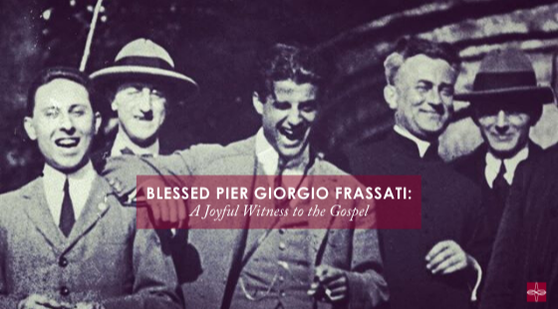

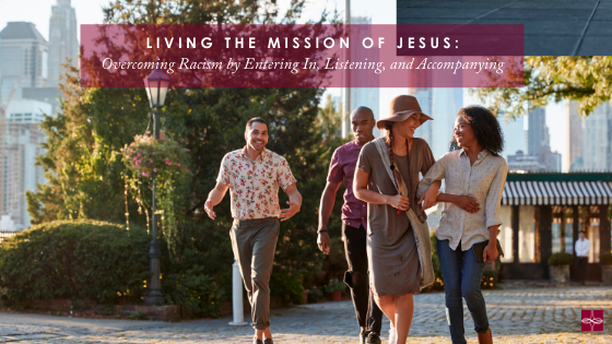

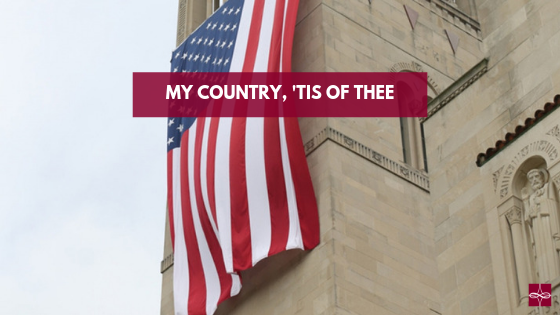

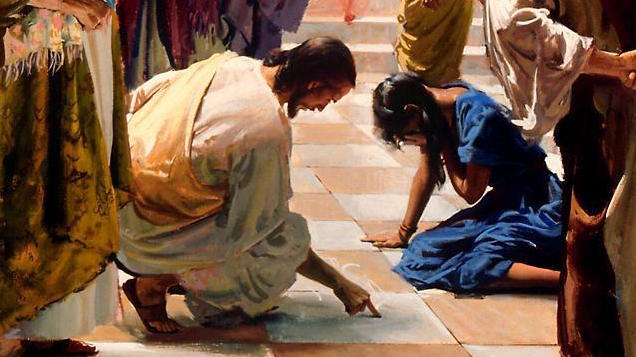
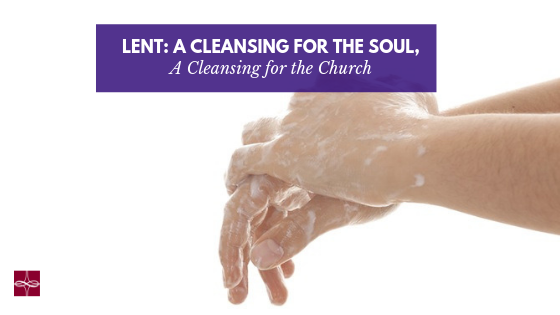

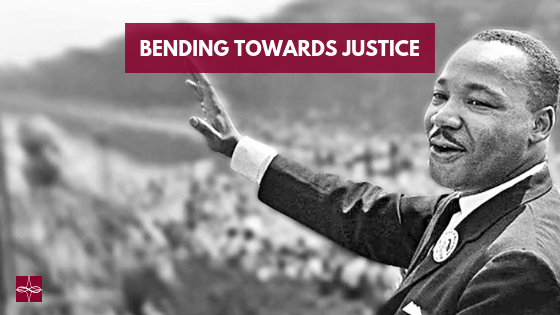


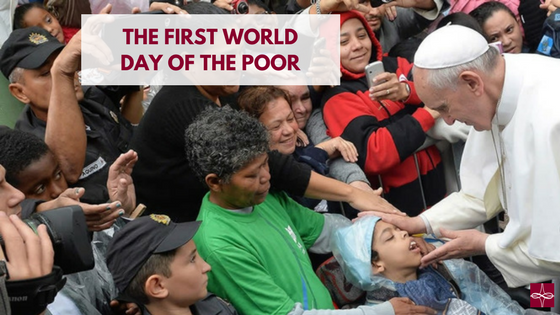

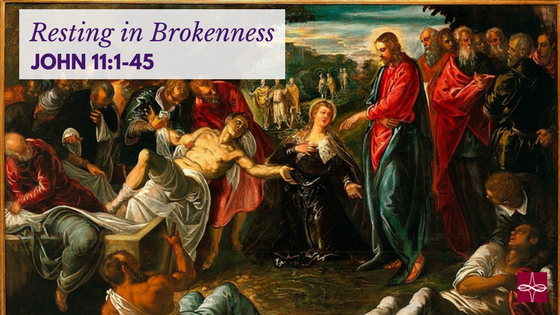
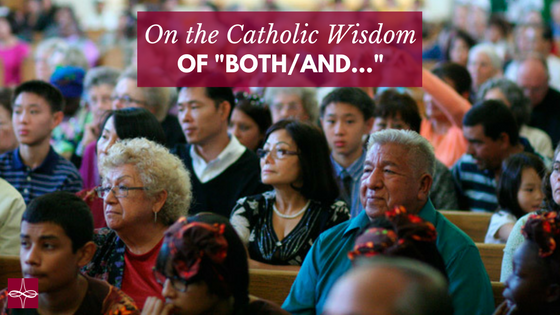
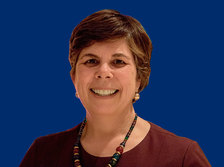


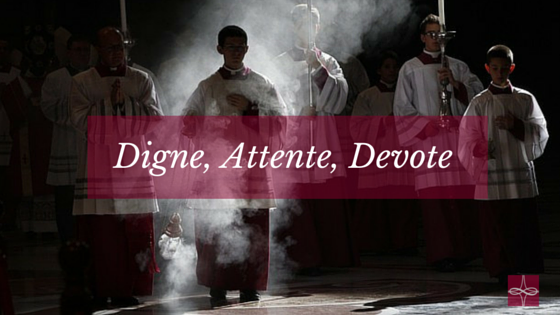

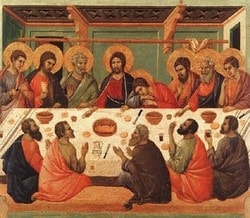


 RSS Feed
RSS Feed